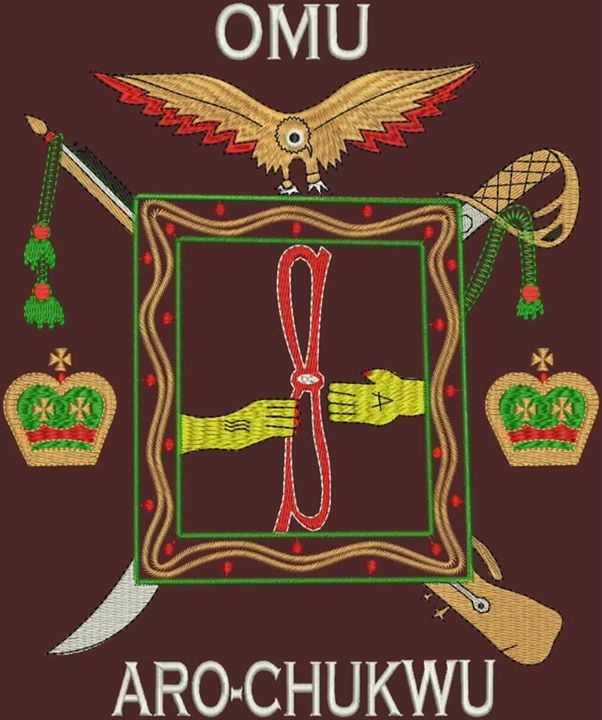Amuvi Village – Our Heritage
Amuvi is undoubtedly one of the foremost villages in the Arochukwu Kingdom, known for its highly progressive people. The village stands out for its exceptional organization and deep sense of brotherhood, a tradition that dates back centuries.
Our forebears demonstrated their commitment by establishing a strong governance structure and strategically mapping the village to foster development.
To uphold this legacy, the Amuvi Development Project is an initiative aimed at fostering the growth and prosperity of Amuvi, a village in Arochukwu, Abia State, Nigeria. The project’s goals are encapsulated in our Vision and Mission Statements.
Before exploring these areas, it is essential to understand the history, traditional governance structure, and geographical significance of Amuvi.

History And Governance Structure
Based on oral and written history, Amuvi, one of the 19 villages in Arochukwu, was established nearly a century after the Aro-Ibibio War of circa 1534. The first villages to emerge were Ugwuakuma, Utughugwu, and Amannagwu, followed by Obinkita. Amuvi was founded between mid-November 1630 and early March 1631 by Ezuma Oke and Umahi Nlenanya, descendants of the Oke-Nnachi kindred, representing Eziukwu and Ugwogo respectively.
Due to population growth and administrative convenience, these two original families later expanded into seven compounds (ezi):
· Ndi Chiobaeke
· Ndi Igwe Oti
· Eziukwu
· Ezinta
· Ndi Okoro-Mgbo
· Ndi Umahi-Nlenanya
· Ndi Obia
Over time, Amuvi village has made significant strides in education, trade, commerce, urban, and infrastructural development. Diaspora communities within Nigeria and beyond have contributed to its population growth as well as economic and socio-cultural vibrancy, enriching the traditions and practices of the village.
Amuvi has a well-established traditional leadership structure. The village has been governed by nine Eze Ogo (traditional rulers), while each compound is led by an Eze-Ezi who plays a vital cultural and advisory role. These leaders ensure the preservation of Amuvi’s heritage while integrating modern advancements.
In addition to the traditional leadership, the village’s daily affairs are managed under an association governed by a constitution. The Amuvi Welfare and Development Association (AWADA) was formed, among other things, to promote peace, progress, welfare, and development of the village. AWADA operates through three main wings:
THE MEN’S WING (AWADA)
(A) Membership and Structure of the Men’s Wing
Membership in the Men’s Wing is open to all male citizens of Amuvi descent aged 30 and above. Individuals may join through either financial or non-financial membership. Registration is carried out at the local AWADA branch level, and each branch must be officially registered with the Central Body. To remain active, branches are required to submit quarterly dues to the Central Body on behalf of their members.
The Central Body is led by the President General (PG) and his cabinet, and functions through three main organs of governance:
1. Central Officers’ Committee (COC) – Responsible for day-to-day operations and developing policy direction for the National Executive Council (NEC).
2. National Executive Council (NEC) – Tasked with formulating and implementing policy, upholding the constitution, enforcing rules and regulations, appointing project-specific committees, and overseeing the organization’s development initiatives.
3. General Assembly (GA) – Composed of all members, the GA holds ultimate authority over policy decisions and governance guidelines.
The powers and responsibilities of these three governing organs are further outlined in the Association’s Constitution.
While the Association functions primarily through regular meetings at the local branch level, key decisions affecting the welfare and development of the Amuvi community are made during the following central meetings: Central Officers’ Committee (COC) Meeting; National Executive Council (NEC) Meeting; General Assembly (GA) Meeting (including emergency sessions as needed)
(B) Development Efforts and the Amuvi Development Group (ADG)
Since its founding, AWADA’s development initiatives have largely been powered by the dedication of individuals and various interim and standing committees. Branches located in diaspora communities—both within and outside Nigeria—have played a vital role, especially Amuvi natives in the USA and Canada, who are organized under the Amuvi Foundation North America (AFNA) and those in United Kingdom (UK). These groups have been pivotal in executing development projects for the Amuvi community, a commitment that continues to this day.
In 2020, AWADA adopted a more strategic and structured approach to development by establishing the Amuvi Development Group (ADG). Operating under the men’s wing, the ADG was formed to lead, coordinate, and implement long-term development initiatives. It is tasked with:
- Mobilizing Amuvi citizens at home and in the diaspora to participate in village development.
- Generating and managing funds from legitimate sources.
- Identifying and executing impactful projects.
- Harmonizing ongoing projects for effective and efficient realization. Etc
THE WOMEN’S WING (ONYEMARANWANNEYA)
The Women’s Wing consists of Amuvi women and plays an integral role in AWADA. This wing collaborates both independently and alongside the Men’s Wing to execute development projects, fostering unity and shared responsibility. According to the constitution, the Women’s Wing must hold at least one joint Central Executive Council meeting with the Men’s Wing annually, and, where possible, one joint general meeting each year.
THE YOUTH WING
Comprising individuals aged 15 to 30 years, this group includes students, artisans, and young professionals. Their mission is to support adult groups and leverage their talents for the development of Amuvi.
In summary, the ADG is the primary development organ of the village, but it collaborates effectively with the Men’s wing, the Women’s wing (Onyemaranwanneya) and the Youth’s wing to ensure that set objectives are achieved.
